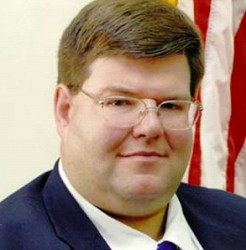By United States of America Embassy Georgetown Chargé d’Affaires
Bryan Hunt
GEORGETOWN—World Press Freedom Day in Guyana has special meaning in 2015. The country is approaching national elections and it is critically important for the press to provide fair and balanced coverage to educate and inform Guyanese citizens about the issues and the positions of the contesting parties. The media is often called the fourth branch of government (or the “fourth estate”). That’s because it monitors the political process in order to ensure that political players don’t abuse the democratic process. The responsibility of the press is daunting. Editors and television executives must weigh the public’s right to know against the potential for inciting civil unrest by publishing or televising inflammatory news stories. This is responsible journalism.
This year’s theme is “Let Journalism Thrive! Towards Better Reporting, Gender Equality, & Media Safety in the Digital Age.” President Obama has said “that investigative journalism, explanatory journalism, journalism that exposes corruption and justice gives voice to the different and the marginalized, the voiceless — that’s power. It’s a privilege.” He goes on to state, “It is not the fact of liberty, but the way in which liberty is exercised that ultimately determines whether liberty itself survives.”

Journalists are being silenced around the world. In too many places, they are imprisoned, attacked, intimidated, disappeared, exiled or murdered for trying to report the news or exercise their freedom of expression. Freedom of the press is a form of liberty that must be pervasive throughout society, and it is incumbent upon members of the press corps to be responsible when exercising this freedom.
In less than two weeks, Guyanese voters will go to the polls to determine the political coalition that they believe is best suited to govern their nation over the next several years. What must hold firm before and after the elections, regardless of the result, is a determination and an unwavering commitment by the press to accurate, fair, and equitable coverage of all leaders and parties contesting the polls. Print, radio, television, online news sources and all forms of press must rededicate themselves to ensure the stories they write or air on radio or television are based on facts and that they provide equitable coverage to all sides’ points of view. Public trust is difficult to earn, but when it is gone it is even more difficult to win back.
The Media Monitoring Unit, revitalized within the General Elections Commission, is tasked with evaluating media outlets and assessing fairness and objectivity. The findings in its first two reports are less than encouraging, but they serve as a benchmark for making improvements. Almost all major reporting organizations were cited for their lack of judgment and failure to remain objective, but there were examples of outstanding journalism and those can be multiplied in the future.
Reporting is a difficult job with untold pressure to quickly conduct thorough and accurate research and to produce high quality writing while meeting very tight deadlines. Salaries are often barely enough to make ends meet and the sacrifices made in terms of work-family balance are significant. Access to government and non-government officials can also be challenging, and the dangers associated with investigating sensitive matters are well documented. Each year many journalists make the ultimate sacrifice in the line of duty to cover the story, get the human angle to a crime, or cover a war embedded within a military unit. And women are often subject to harassment by the subjects they interview. To make matters worse, they are often paid less than men performing the same function. To the credit of all those in the press corps who treat their work as more than a job, but as public service, we applaud your contribution to building a thriving democracy.
The Universal Declaration of Human Rights proclaims the right of every person “to seek, receive and impart information and ideas through any media and regardless of frontiers.” We must continue working together to ensure that right is enjoyed by all citizens in the Cooperative Republic of Guyana, and by our brothers and sisters throughout the world.




